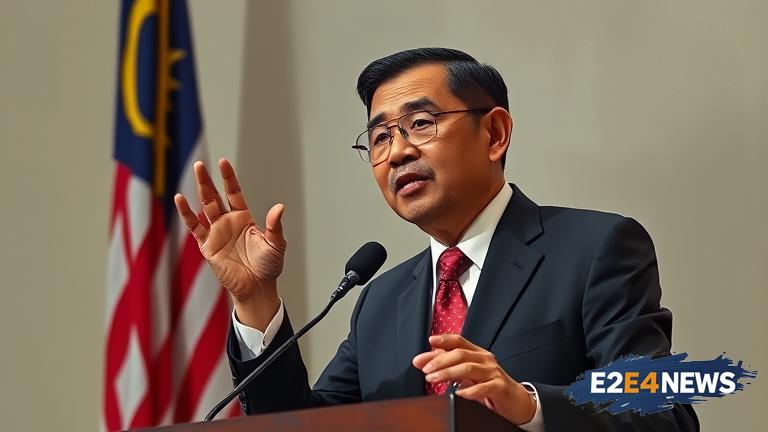In a recent parliamentary session, Malaysian Minister Dr. Wee called for a comprehensive tax reform, citing the need to streamline and modernize the country’s tax system. However, his remarks were met with fierce resistance from Pakatan MPs, who accused him of perpetuating ‘daylight robbery’ through allegedly unfair tax policies. The MPs argued that the current tax system disproportionately burdens the middle and lower classes, while allowing the wealthy to exploit loopholes and evade taxes. Dr. Wee’s proposal was seen as an attempt to further entrench these inequalities, rather than addressing the root causes of the problem. The minister’s comments sparked a heated debate, with opposition MPs demanding that he retract his statement and apologize for any offense caused. Dr. Wee refused to back down, insisting that his remarks were taken out of context and that he was committed to creating a fairer and more equitable tax system. The controversy has highlighted the deep-seated divisions within the Malaysian government, with different factions holding vastly different views on how to address the country’s economic challenges. The tax reform proposal has also sparked concerns among businesses and individuals, who are worried about the potential impact on their finances and livelihoods. As the debate rages on, it remains to be seen whether Dr. Wee’s proposal will gain traction or be rejected outright. The Malaysian government has faced criticism in the past for its handling of tax policies, with many arguing that the system is overly complex and prone to abuse. The current controversy has brought these issues to the forefront, with many calling for a more transparent and accountable approach to taxation. Dr. Wee’s remarks have also sparked a wider discussion about the role of government in regulating the economy and ensuring that the wealthy are held to account for their tax obligations. The minister’s proposal has been seen as a test of the government’s commitment to addressing issues of economic inequality and promoting social justice. As the situation continues to unfold, it is likely that the debate will only intensify, with different stakeholders weighing in on the merits and drawbacks of Dr. Wee’s proposal. The Malaysian public is watching the developments with great interest, eager to see how the government will respond to the criticisms and concerns raised by the opposition and other stakeholders. The tax reform proposal has also sparked concerns about the potential impact on the country’s economic growth and competitiveness, with some arguing that the changes could deter investment and hinder business activity. Others have argued that the reforms are necessary to ensure that the tax system is fair and equitable, and that the benefits of economic growth are shared more widely among the population. The controversy has highlighted the need for a more nuanced and informed discussion about tax policies and their impact on the economy and society. As the debate continues, it is likely that new proposals and ideas will emerge, and that the government will be forced to confront the challenges and complexities of creating a fair and effective tax system. The situation is being closely watched by international observers, who are interested in seeing how the Malaysian government will navigate the complex issues surrounding tax reform. The country’s experience could provide valuable lessons for other nations facing similar challenges, and could help to inform the development of more effective and equitable tax policies around the world. The Malaysian government has a unique opportunity to create a more just and sustainable tax system, one that promotes economic growth and social justice while also ensuring that the wealthy are held to account for their tax obligations. As the controversy surrounding Dr. Wee’s proposal continues to unfold, it is likely that the government will face increasing pressure to deliver on its promises and create a fairer and more equitable tax system for all Malaysians.





